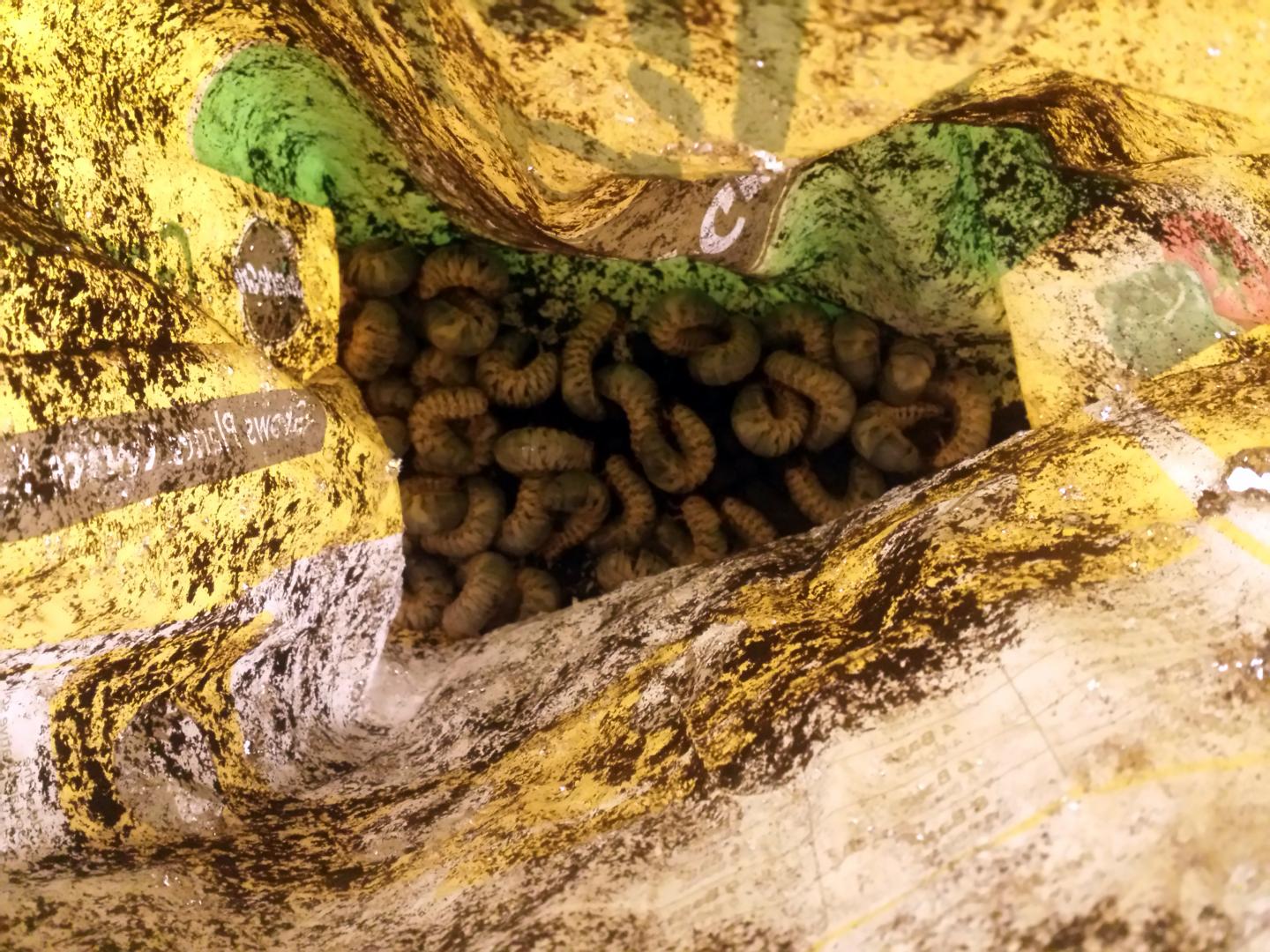
Credit: Aubrey Moore
Bags of potting soil have become love hotels and nurseries for the highly invasive coconut rhinoceros beetle on the island of Guam.
Extension and Outreach personnel at the College of Natural and Applied Sciences, University of Guam had received numerous complaints from clients finding beetle grubs in bags of potting soil purchased at local stores. "These complaints prompted us to investigate by visiting the garden center of a local hardware store franchise that imports soil from the US mainland," said Dr. Aubrey Moore, UOG extension entomologist. "We noticed several unopened bags of potting soil with multiple holes in the plastic. After selecting one and opening it we discovered five large coconut rhinoceros beetle (CRB) grubs. Unfortunately for Guam's coconut trees, this is a really good way to spread rhino beetles around the island."
Garden centers very often keep bags of potting soil stacked outdoors making them easily accessible to customers and interested insects. Coconut rhinoceros beetles seek out high-density organic material, as decaying organic matter is the preferred place to find a mate and lay their eggs. With the alluring high organic matter content of packaged potting soil, coconut rhinoceros beetles make holes in the thin plastic bags and deposit their eggs. When unsuspecting gardeners buy potting soil for use in their home gardens they are getting more than they paid for and are helping the invasive rhino beetles move around the island.
"Rhino beetle larvae are excellent decomposers, which is why dead standing coconut trees and fallen logs are a hotbed of rhino beetle breeding activity. There is plenty of food to support development from egg to adult," warned extension agent Roland Quituqua. Banning the outdoor storage of bags of potting soil would be one way to help curtail the spread of coconut rhinoceros beetles throughout the island.
###
A scientific note on these observations has been published in the December 2016 issue of the Proceedings of the Hawaiian Entomological Society.
For more information on coconut rhinoceros beetles and the work UOG researchers are doing to control this invasive insect, please visit, http://cnas-re.uog.edu/crb/.
Media Contact
Olympia Terral
[email protected]
http://www.uog.edu
############
Story Source: Materials provided by Scienmag





